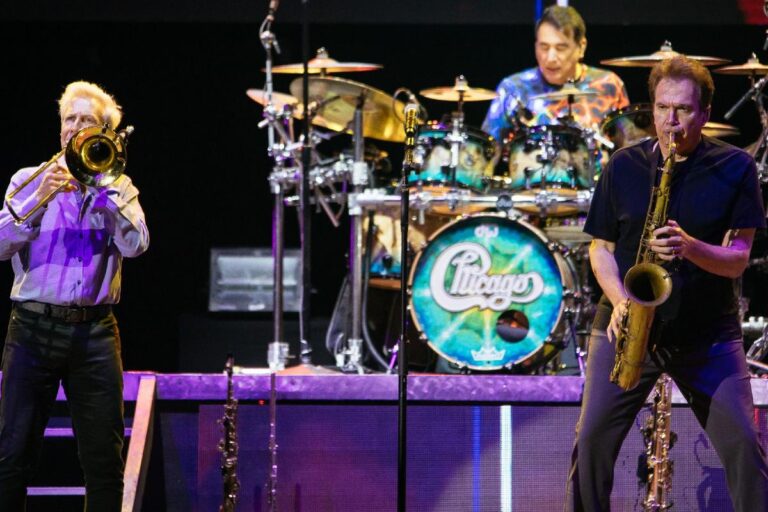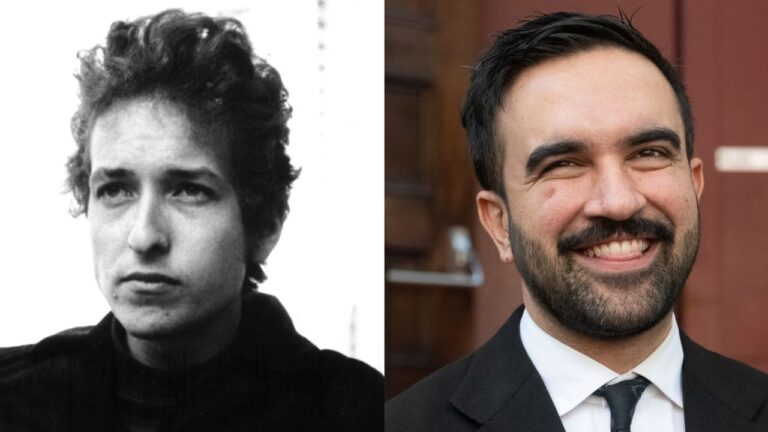Danny Brown spent his last album, 2023’s Quaranta, in quiet contemplation. The record, named after the Italian word for 40, was a spiritual sequel to his breakout 2011 release XXX, and a conscious work of contrast. Where XXX was zany and manic, driven by wacky punchlines and lurid stories of life as a drug seller and user in Detroit, Quaranta was downtempo and reflective. After a decade of making party music, the man who once bragged “because I’m 32, I know how to do my drugs,” began to question that narrative of control. Though the album was recorded before he went to rehab and came out after his stay there, Quaranta captured with stunning clarity the doubts and demons that pushed Brown toward sobriety.
His new album Stardust is his first recorded without substances, and trades self-examination for affirmation. Over staggering beats sourced from young experimental pop acts like Jane Remover, Quadeca, Underscores, and Holly, Brown narrates his newly clean lifestyle with beaming gratitude. Amidst the sparkly chaos of hyperpop, and the upbeat tempos of house and EDM, Danny Brown seeks to reclaim the fun that fueled the music he made under the influence. This is his take on recovery rap — 12-step-core from an artist who was once once of hip-hop’s proudest hedonists.
After opening with the moving “Book of Daniel,” a triumphant testimony set to soft rock guitar and piano, Brown plunges into brash electronics. It’s a tricky play because Brown’s not at all a stranger to these sounds. He’s a longtime admirer of grime, grew up immersed in Detroit’s ghettotech scene, and cut his teeth during the 2010s EDM boom, so multiple strains of electronic music deeply inform his delivery and style. Plus, Stardust is his fourth album on storied label Warp, and before signing there he was at Fool’s Gold’s, which also mostly represents electronic artists.
So there’s some familiarity to his flows and his beat selections, even as Brown remains a witty lyricist. “Driving fast while she do it slow/I’m about to Busta, gimme me some mo,” he says on “Green Light,” a yearning team-up with sibling duo Frost Children.
And there’s also the matter of Brown’s music always having been confessional and layered. “Gotta get away, to escape, I smoke this kush to the face,” he rapped on 2013’s “Smokin’ and Drinkin,’” a song as anxious as it was revelatory. Darkness and desperation always lurked behind the gonzo decadence, a dynamic that’s missing on the comparatively bright-eyed Stardust.
Brown’s writing here isn’t as consistently vivid as it normally is, and his affirmations grow formulaic. He makes a lot of perfunctory before-and-after comparisons: “Made it out the dirt, trauma and hurt”;“trauma I went through just made me stronger than ever”; “loving it, made it from the bottom but still thugging it.” Brown doesn’t need to detail his darkest days to make his sober present more resonant, but the repeated phrasing flattens his journey.
In terms of sheer ability, Brown has no trouble navigating these bustling beats, which are packed with rhythms, drops, switches, and sound effects. “Baby,” a highlight, finds him swinging from whispers to shouts over stuttering drums, dinging bells, and seismic bass kicks. It showcases how easily he can find pockets and how clarion his voice sounds even amid busy production. It’s also one of the few times on Stardust that he and his collaborator, in this case Underscores, share a vision for the song. (This is also true for their other team-up, the bouncy “Copycats.”)
Brown has called Stardust his “easiest album” to make because he could focus on writing while the producers, most of whom also contribute vocals, handled hooks. But this results in disjointed songs that make Brown feel like an accessory rather than the peer of Kendrick Lamar and Earl Sweatshirt, which he asserts on the opener. Industrial track “1999” smashes together Brown talking shit and producer and vocalist JOHNNASCUS screaming with no real bridge between them or friction from the collision. It sounds like an outtake from Linkin Park’s Reanimation. “Flowers,” with singer and producer 8485, is a little more connective, but feels just as plug-and-play as Brown rattles off floral puns based on her rosy hook.
Where past Danny Brown records had a Paul White, JPEGMAFIA, or Q-Tip to maintain a core sensibility, here there’s no real guiding principle beyond the glossy aesthetic. And nothing here is especially adventurous: The songs do glitch out and leapfrog across genres, but few are as sticky, disorienting, and vulnerable as the best work in the hyperpop scene or in Brown’s catalog. (The meandering narration from Angel Phrost, who appears across the record saying things like, “Like a vegetarian with a carnivore spirit, you stabbed at the fauna of the world, hunted it, surveying life’s riches,” ups the lack of direction.)
Stardust ultimately functions more as a love letter to the music that helped invigorate Brown during rehab than a reinvention. While there’s a certain charm in a rap vet humbly taking cues from the youthful, queer-led scene that helped him pick up the broken pieces of his life, the music isn’t as riveting as the optics. Stardust is a fitting title — this is Danny Brown-lite.



